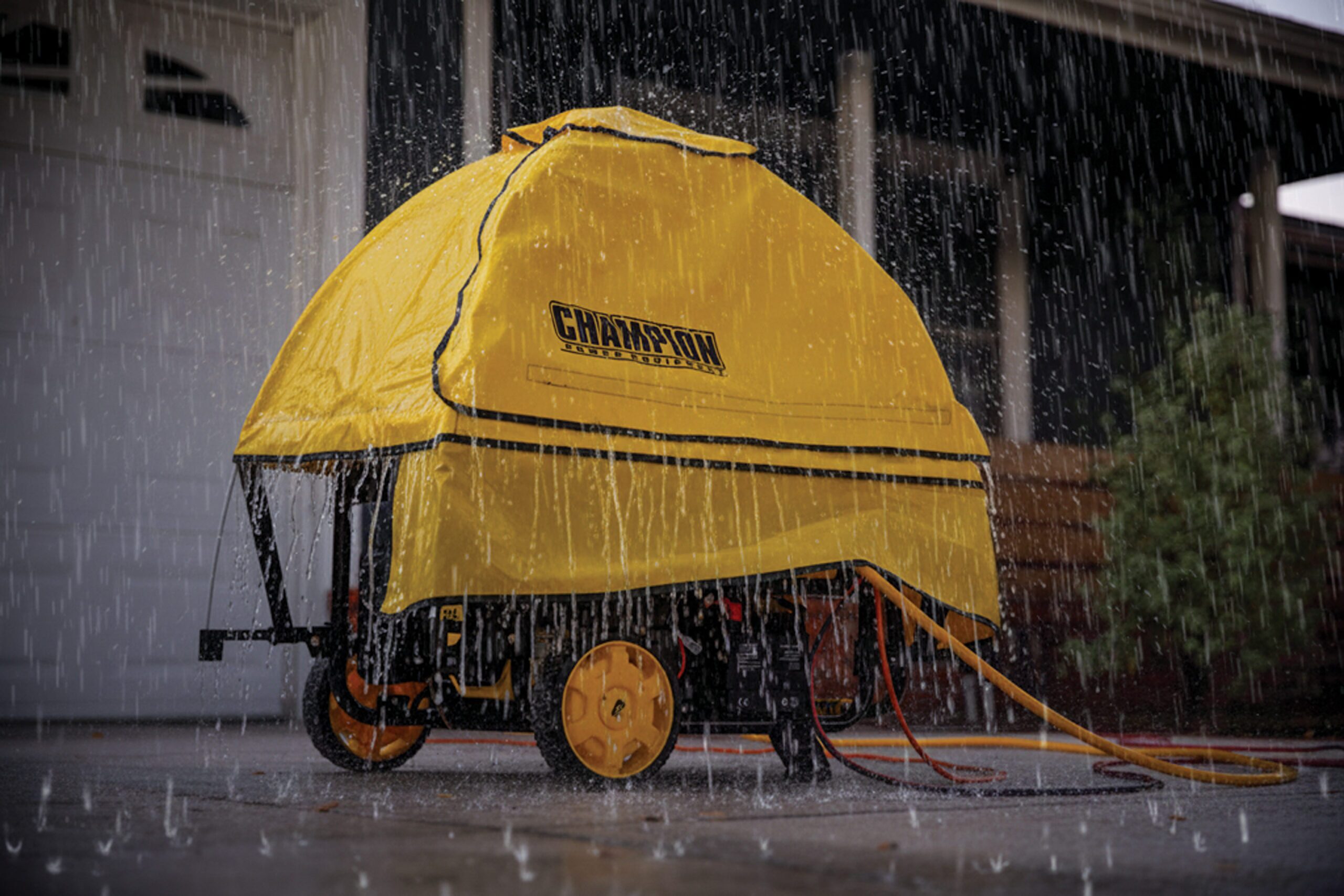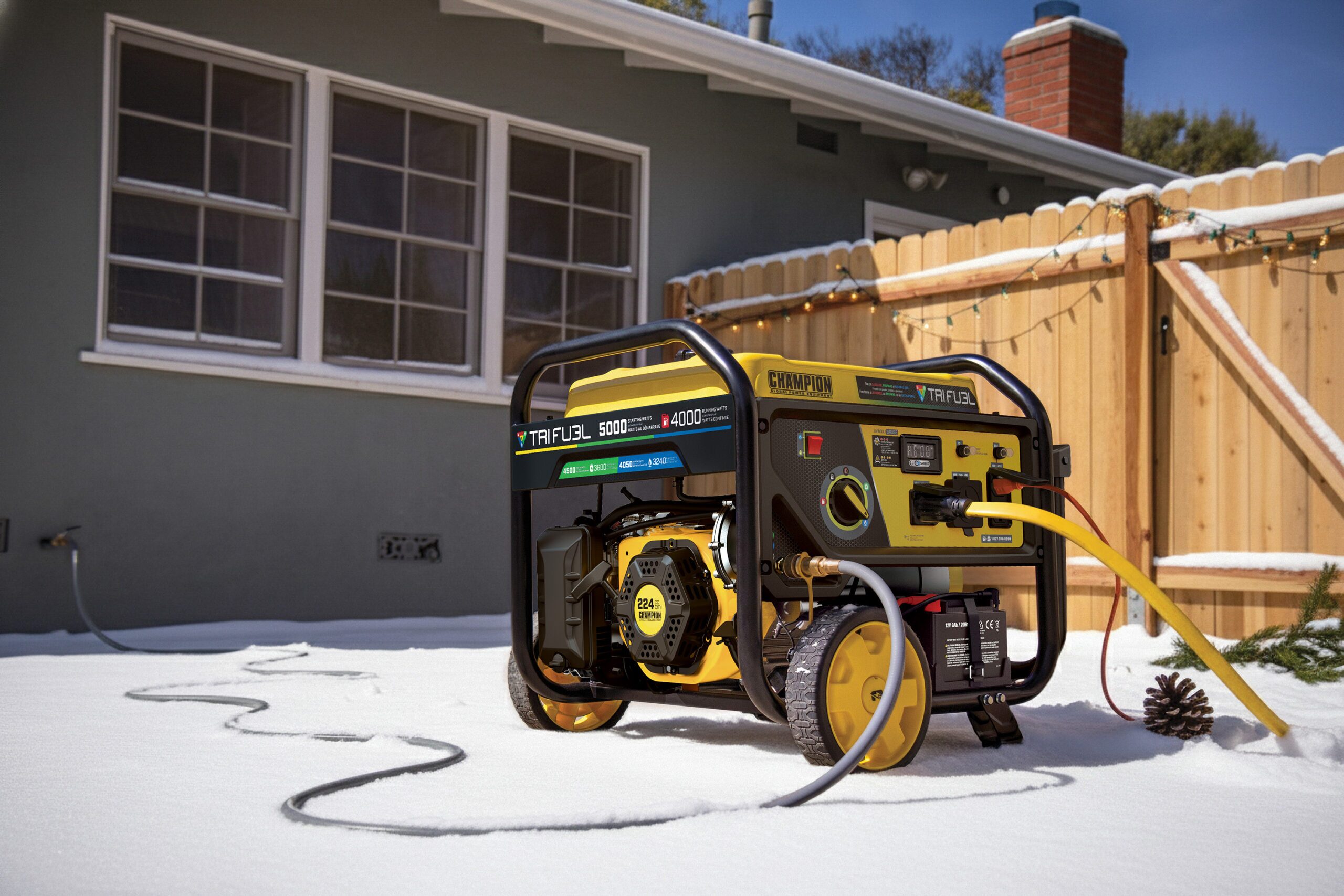How to Store a Generator when Not in Use
Wondering “how do I store a generator when not in use?” It’s an essential task that keeps your machine in optimal shape for when you need it most. Whether you rely on your generator during power outages or for camping trips, knowing how to store a generator properly ensures it’s always ready to go. In this guide, we’ll walk you through the steps of preparing and storing a generator, including vital cleaning and maintenance tasks. We’ll also discuss how to protect your generator from environmental factors, keeping it ready for action whenever the need arises.
Preparing Your Generator for Storage
Before storing a generator for a while, you’ll want to ensure it’s in prime condition for the next use.
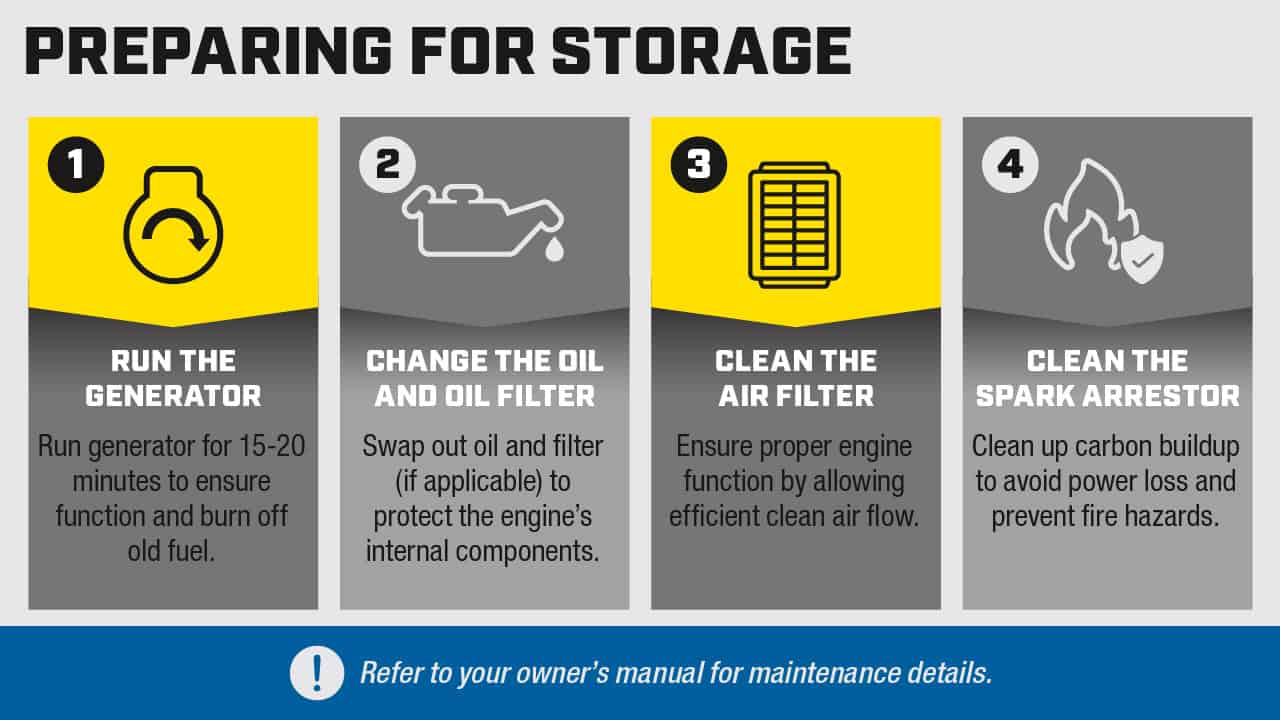
- Start by running the generator for a short period (15-20 minutes) to make sure everything’s functioning correctly. This process also helps burn off any remaining fuel, which is key in preventing issues related to old gasoline.
- Change the oil and oil filter (12,000-watt units and above only). Old oil can contain particles that might cause engine wear if left unattended. By swapping out the oil, you help protect the engine’s internal components and maintain smooth operation.
- Clean the air filter. A clean air filter is vital for proper engine function, as it ensures the engine receives the right amount of clean air. If the filter’s clogged or dirty, it can restrict airflow, reducing efficiency and possibly harming the engine. So, take a few minutes to clean or replace it as needed.
- Clean your portable generator’s spark arrestor. If the arrestor contains too much carbon buildup, engine performance will hinder, can surge, or experience power loss. Keeping it clean also helps prevent fire hazards.
By following these steps, you’ll set yourself up for successful generator storage and reliable future use.
Pre-Storage Cleaning and Maintenance
Cleaning and maintenance are crucial before you tuck your generator away for an extended period.
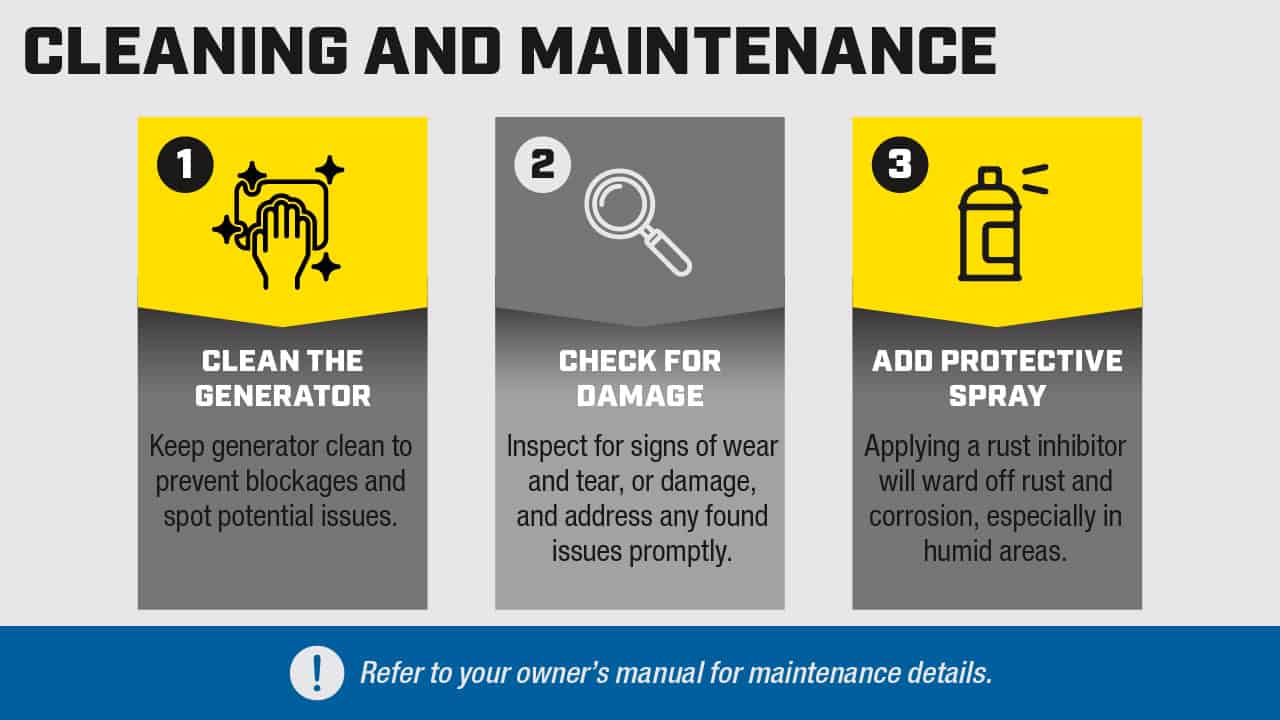
- Wipe off any debris from the exterior using a soft cloth. Pay special attention to the air intake and exhaust areas to prevent blockages. A clean surface not only looks good but also helps you spot any potential issues that might need fixing.
- Check for signs of wear or damage as well. Inspect the generator’s casing, fuel lines, and electrical connections for any cracks or fraying. Addressing these issues before storage can save you from headaches down the road. If you spot significant damage, consult your generator’s owner’s manual for advice on repairs or replacements.
- Apply a protective spray to ward off rust and corrosion. A good rust inhibitor can be valuable, especially if your generator will be in a humid area. This little step goes a long way in maintaining your generator’s condition.
By taking care of these cleaning and maintenance tasks, you ensure your generator remains in great shape, ready for whatever comes next. For a full guide on generator maintenance*, check out our generator maintenance checklist.
*Always refer to your portable generator’s owner’s manual for model-specific maintenance information.
Safe Generator Storage Best Practices
When it comes to generator storage, location is crucial. Choose a dry, cool spot away from direct sunlight, like a well-ventilated garage or shed. Avoiding excessive heat and humidity helps protect your generator’s components and fuel system.
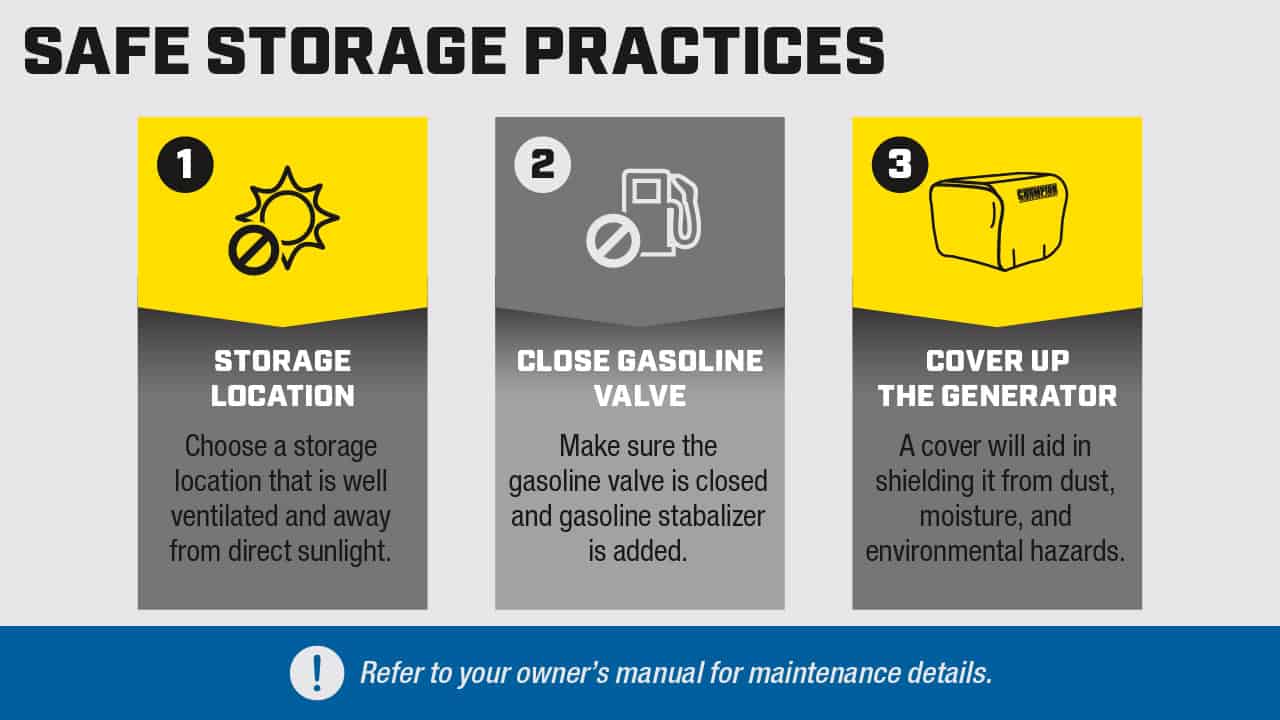
Before storing your generator, make sure the gas valve is closed and use a generator gas stabilizer. A generator gas stabilizer prevents gasoline from deteriorating, which could lead to hard starts or engine troubles later. Run the generator for a few minutes with the stabilizer so the whole system benefits. Let it cool completely before stowing it away.
Consider covering your generator to shield it from dust and moisture with a protective cover for portable generators or inverters. A quality cover keeps your generator safe from environmental hazards, helping to maintain its appearance and functionality.
Lastly, is it safe to store a generator in a garage? The answer is yes, as long as it’s well-ventilated and the generator is cool before storage. This ensures safe and effective generator storage.
Generator Storage Locations
Knowing where to store a generator when not in use is crucial for its longevity. A well-ventilated garage or a dedicated storage shed can be ideal locations, provided they are dry and shielded from direct sunlight. Proper generator storage not only keeps your equipment in working order but also ensures safety.
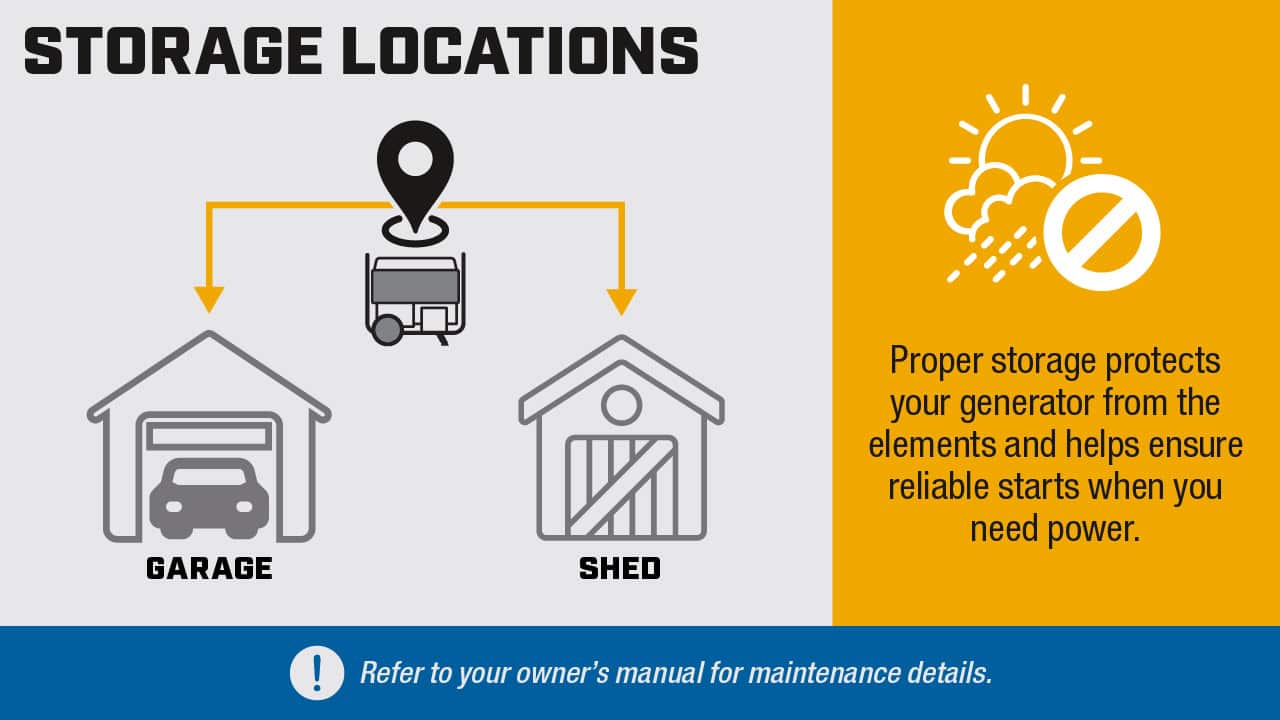
By storing a generator in a location that meets these conditions, you minimize the risk of damage from environmental factors. Always remember to use a generator gas stabilizer to maintain fuel quality, and routinely check the condition of your generator to prevent long-term issues.
Customer Support
Champion provides multiple support options to fit your needs. Our team is available by phone or live chat, while our Help Center offers easy-to-follow guides and self-service resources for a DIY approach. Additional tutorials and troubleshooting videos can be found on our YouTube channel to help you keep your equipment running smoothly.
